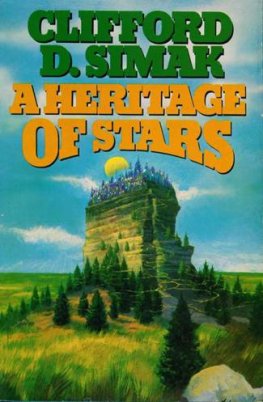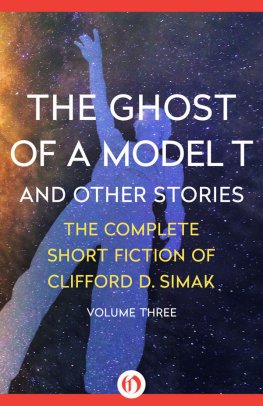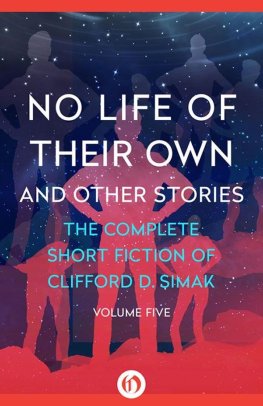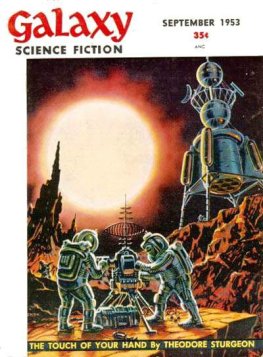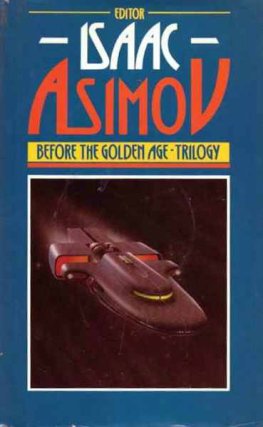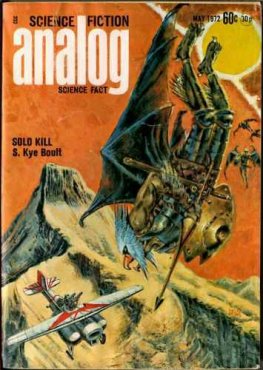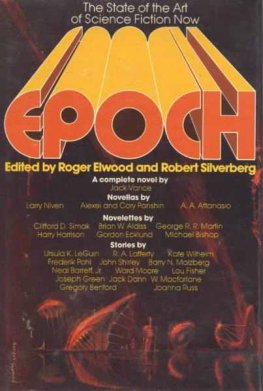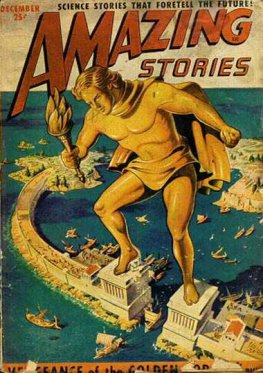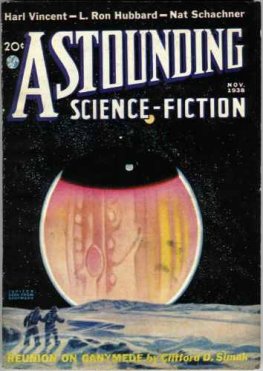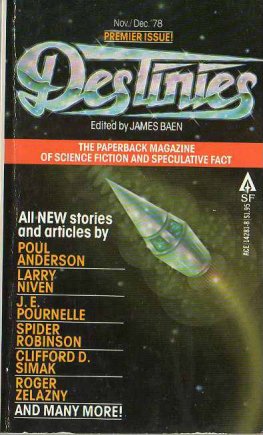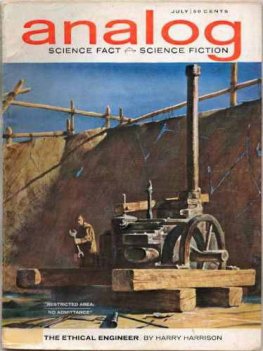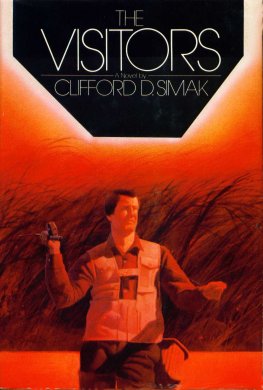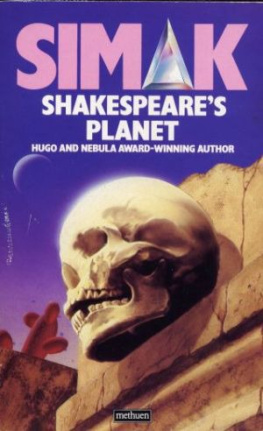Clifford Simak - A Heritage of Stars
Here you can read online Clifford Simak - A Heritage of Stars full text of the book (entire story) in english for free. Download pdf and epub, get meaning, cover and reviews about this ebook. genre: Science fiction. Description of the work, (preface) as well as reviews are available. Best literature library LitArk.com created for fans of good reading and offers a wide selection of genres:
Romance novel
Science fiction
Adventure
Detective
Science
History
Home and family
Prose
Art
Politics
Computer
Non-fiction
Religion
Business
Children
Humor
Choose a favorite category and find really read worthwhile books. Enjoy immersion in the world of imagination, feel the emotions of the characters or learn something new for yourself, make an fascinating discovery.
- Book:A Heritage of Stars
- Author:
- Genre:
- Rating:3 / 5
- Favourites:Add to favourites
- Your mark:
- 60
- 1
- 2
- 3
- 4
- 5
A Heritage of Stars: summary, description and annotation
We offer to read an annotation, description, summary or preface (depends on what the author of the book "A Heritage of Stars" wrote himself). If you haven't found the necessary information about the book — write in the comments, we will try to find it.
A Heritage of Stars — read online for free the complete book (whole text) full work
Below is the text of the book, divided by pages. System saving the place of the last page read, allows you to conveniently read the book "A Heritage of Stars" online for free, without having to search again every time where you left off. Put a bookmark, and you can go to the page where you finished reading at any time.
Font size:
Interval:
Bookmark:
Clifford D Simak
A Heritage of Stars
One of the curious customs to arise out of the Collapse was the practice of pyramiding robotic brain cases, in the same manner that certain ancient Asiatic barbarians raised pyramids of human heads that later turned to skulls, to commemorate a battle. While the brain-case custom is not universal, there is enough evidence from travelers' tales to show that it is practiced by many sedentary tribes. Nomadic peoples, as well, may have collections of brain cases, but these are not pyramided except on ceremonial occasions. Ordinarily they are stored in sacred chests which, when the band is on the march, are given positions of honor, carried in wagons at the head of the column.
Generally, it has been believed that this fascination with robotic brain cases may commemorate man's triumph over the machines But there is no undeniable evidence that this is so. It is possible that the symmetry of the cases may have an esthetic appeal quite apart from any other real or imagined significance. Or it may be that their preservation is an unconscious reaction to a symbolic permanence~ for of all things created by technological man, they are the most durable, being constructed of a magic metal that defies both time and weather.
From Wilson's History of the End of Civilization
Thomas Cushing hoed potatoes all the afternoon, in the small patch on the bench above the river, between the river and the wall. The patch was doing well. If some unforeseen disease did not fasten on it, if it were not raided on some dark night by one of the tribes across the river, if no other evil fell upon it, come harvest time it would yield up many bushels. He had worked hard to produce that final harvest. He had crept on hands and knees between the rows, knocking potato beetles off the vines with a small stick he held in one hand and catching them as they fell in the bark container he held in the other hand. Catching them so they would not crawl from where they fell into the vines again, to feast upon the leaves. Crawling up and down the rows on his hands and knees, with his muscles screaming at the punishment, with a pitiless sun hammering at him so that he seemed to creep in a miasmatic fog composed of dead and heated air mixed finely with the dust that his crawling raised. At intervals, when the bark container was nearly full of the squirming, confused and deprived bugs, he'd go down to the riverbank, first marking the spot where he had ceased his labor, with the stick planted in the soil; then, squatting on the bank, he'd reach far out to empty the container into the flowing stream, shaking it vigorously to dislodge the last of the beetles, launching them upon a journey that few of them would survive, and carrying those few that would survive far from his potato patch.
In his mind, at times, he had talked to them. I wish you no harm, he'd told them; I do this not out of malice but to protect myself and others of my kind, removing you so you'll not eat the food on which I and others count. Apologizing to them, explaining to them to take away their wrath as ancient, prehistoric hunters had apologized and explained ritually to the bears they had slaughtered for a feast.
In bed, before he went to sleep, he'd think on them again, seeing them once again, a striped golden scum caught in the swirl of water and carried rapidly away to a fate they could not understand, not knowing why or how they'd come to such a fate, powerless to prevent it, with no means of escaping it.
And having dumped them in the river, back to crawling between the rows once more to gather other bugs to consign to the selfsame fate.
Then, later in the summer, when days went by with no rain falling, with the sun striking down out of the cloudless blue bowl of the sky, carrying buckets of water from the river on a yoke slung across his shoulders to supply the thirsty plants the moisture that they lacked; day after day trudging from the river's edge up the sharp slope to the bench, lugging water for his crop, then going back again to get two more pails of water, on an endless treadmill so the plants would grow and thrive and there would be potatoes stored against the winter. Existence, he had thought, survival so hard and dearly boughta continual fight to assure survival. Not like those ancient days Wilson had written about so long ago, reaching back with fumbling fingers to try to create the past that had come to an end centuries before he had put quill to paper, forced to exercise a niggling economy of paperwriting on both sides of each sheet, leaving no margins on either side of the page, with no whiteness left at either top or bottom. And always that small and niggardly, that painfully small, script, so that he could cram in all the words seething in his brain. Agonizing over the concern that he mentioned time and time againthat the history he wrote was based more on myth and legend than on fact, a situation that could not be avoided since so little fact remained. Yet, convinced it was paramount that the history be written before what little fact remained completely disappeared, before the myth and legend had become more distorted than they already were. Agonizing, as well, over his measurement of myth and legend, sweating over his evaluation of them; asking himself, time and time again, "What should I put in? What should I leave out?" For he did not put in all of it; some he had left out. The myth about the Place of Going to the Stars he had left out.
But enough of Wilson, Cushing told himself; he must get back to his hoeing and his weeding. Weeds and bugs were enemies. The lack of rain, an enemy. The too hot sun, an enemy. It was not only he who thought SO: there were others working patches of corn and potatoes that lay on other tiny benches, so much like his own, all up and down the river, close enough to the walls to gain some protection against the occasional raiders from across the river.
He had hoed all the afternoon and now, with the sun finally gone behind the river bluffs looming to the west, he crouched beside the river and stared across the water. Upstream, a mile or so, stood the stone piers of a ruined bridge, with some of the bridge's superstructure still remaining, but nothing one could use to cross the river. Still farther upstream, two great towers rose up, former living structures that the old books called high rises. There had been, it appeared, two such types of structuresordinary high rises and high rises for the elderlyand he wondered briefly why there should have been such age distinction. No such thing was true today. There was no distinction between the young and old. They lived together and needed one another. The young provided strength and the old provided wisdom and they worked together for the benefit of all.
This he had seen when he first came to the university and had experienced himself when he had been taken in under the sponsorship of Monty and Nancy Montrose, the sponsorship in time becoming more than a formal sponsorship, for he had lived with them and had become, in effect, their son. The university and, most of all, Monty and Nancy, had given him equality and kindness. He had, in the last five years, become as truly a part of the university as if he had been born to it and had known what he came to recognize as a unique kind of happiness that, in his years of wandering, he had not known elsewhere. Now, hunkering on the river's bank, he admitted to himself that it had become a nagging happiness, a happiness of guilt, chained here by the sense of affectionate loyalty to the aged couple who had taken him in and made him a part of them. He had gained much from his five years here: the ability to read and write; some acquaintance with the books that, rank on rank, lined the stacks of the library; a better understanding of what the world was all about, of what it once had been and what it was at the present moment. Given, too, within the security of the walls, the time to think, to work out what he wanted of himself. But though he'd worked at it, he still did not quite know what he wanted of or for himself.
Font size:
Interval:
Bookmark:
Similar books «A Heritage of Stars»
Look at similar books to A Heritage of Stars. We have selected literature similar in name and meaning in the hope of providing readers with more options to find new, interesting, not yet read works.
Discussion, reviews of the book A Heritage of Stars and just readers' own opinions. Leave your comments, write what you think about the work, its meaning or the main characters. Specify what exactly you liked and what you didn't like, and why you think so.

